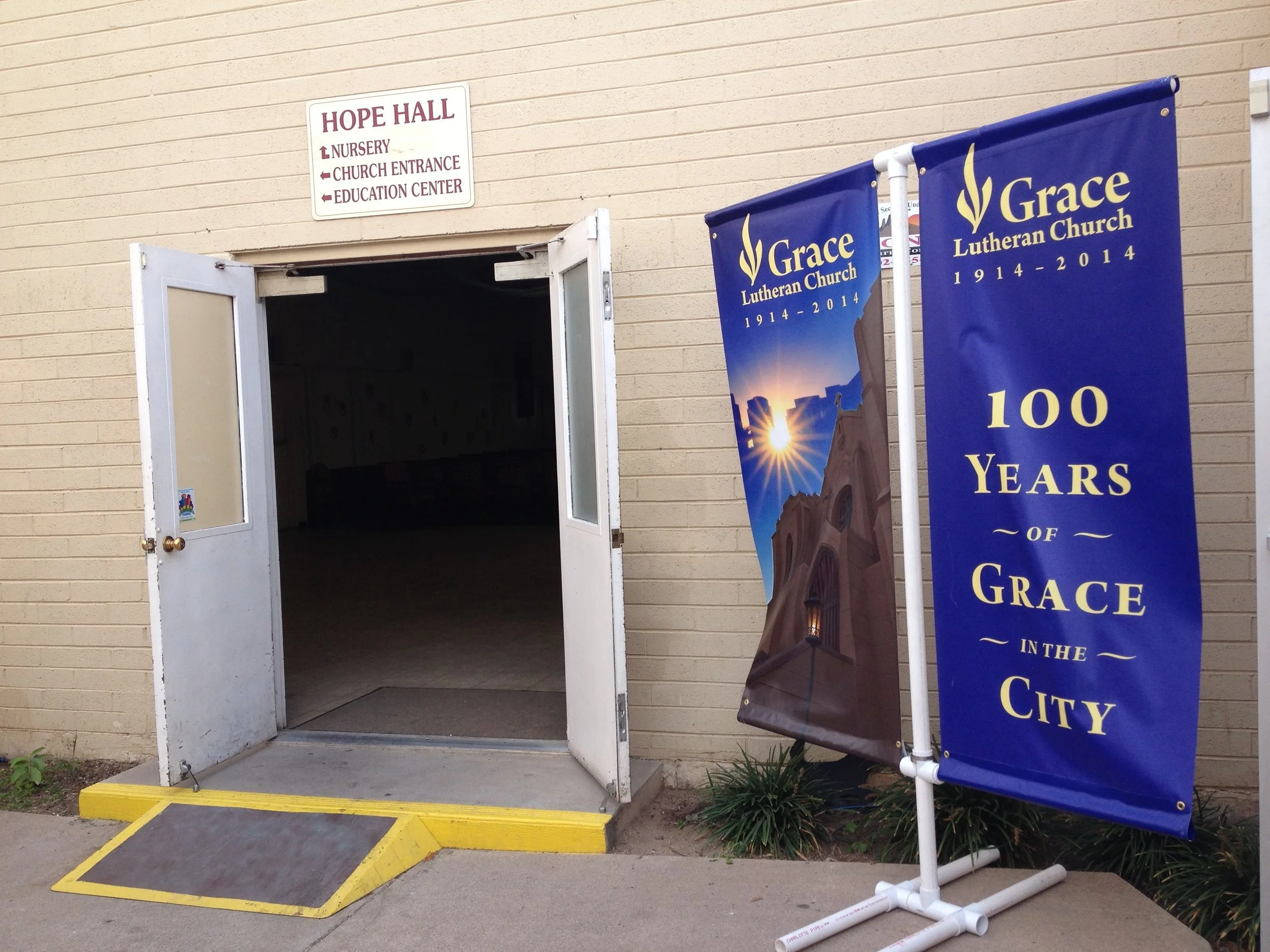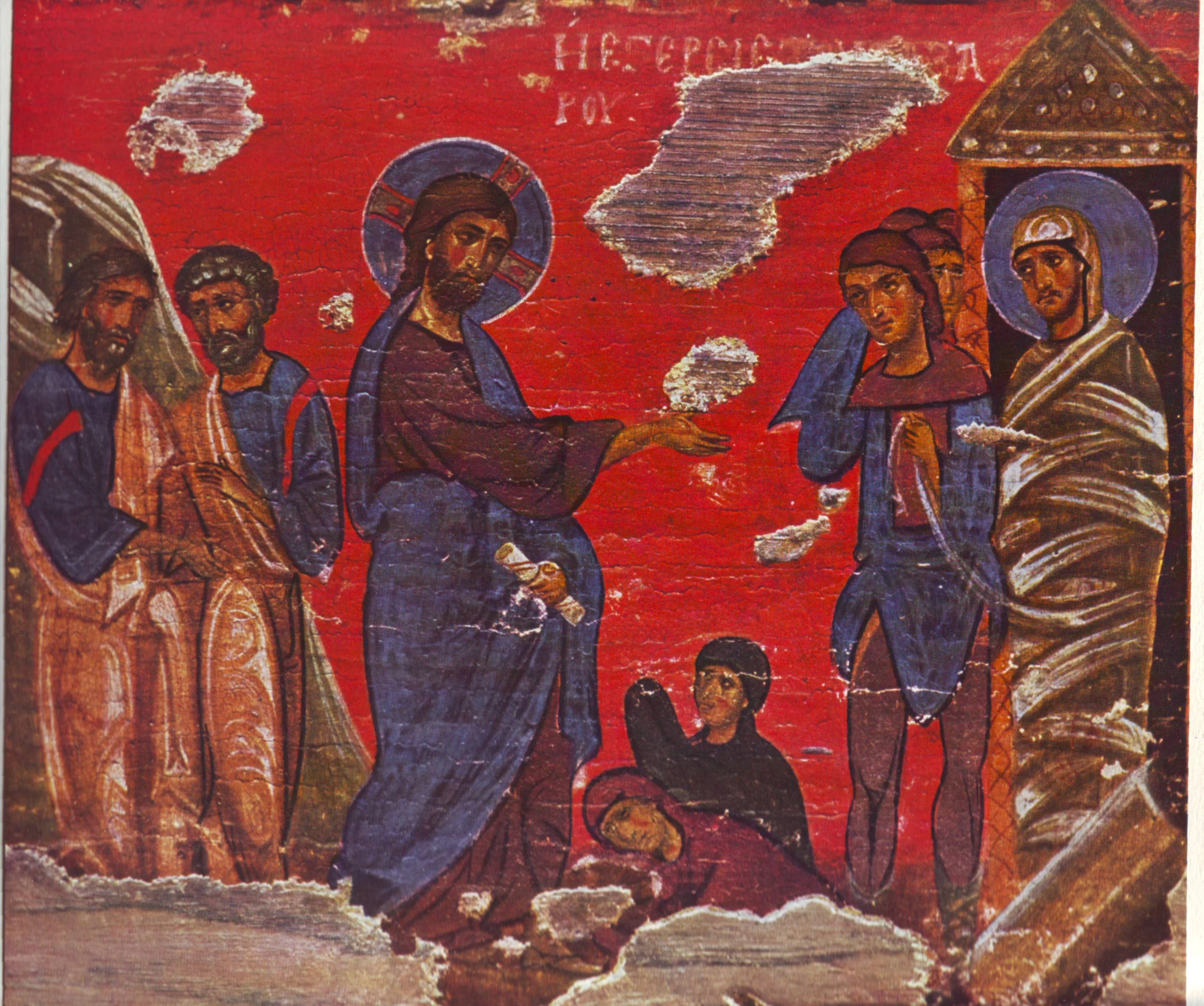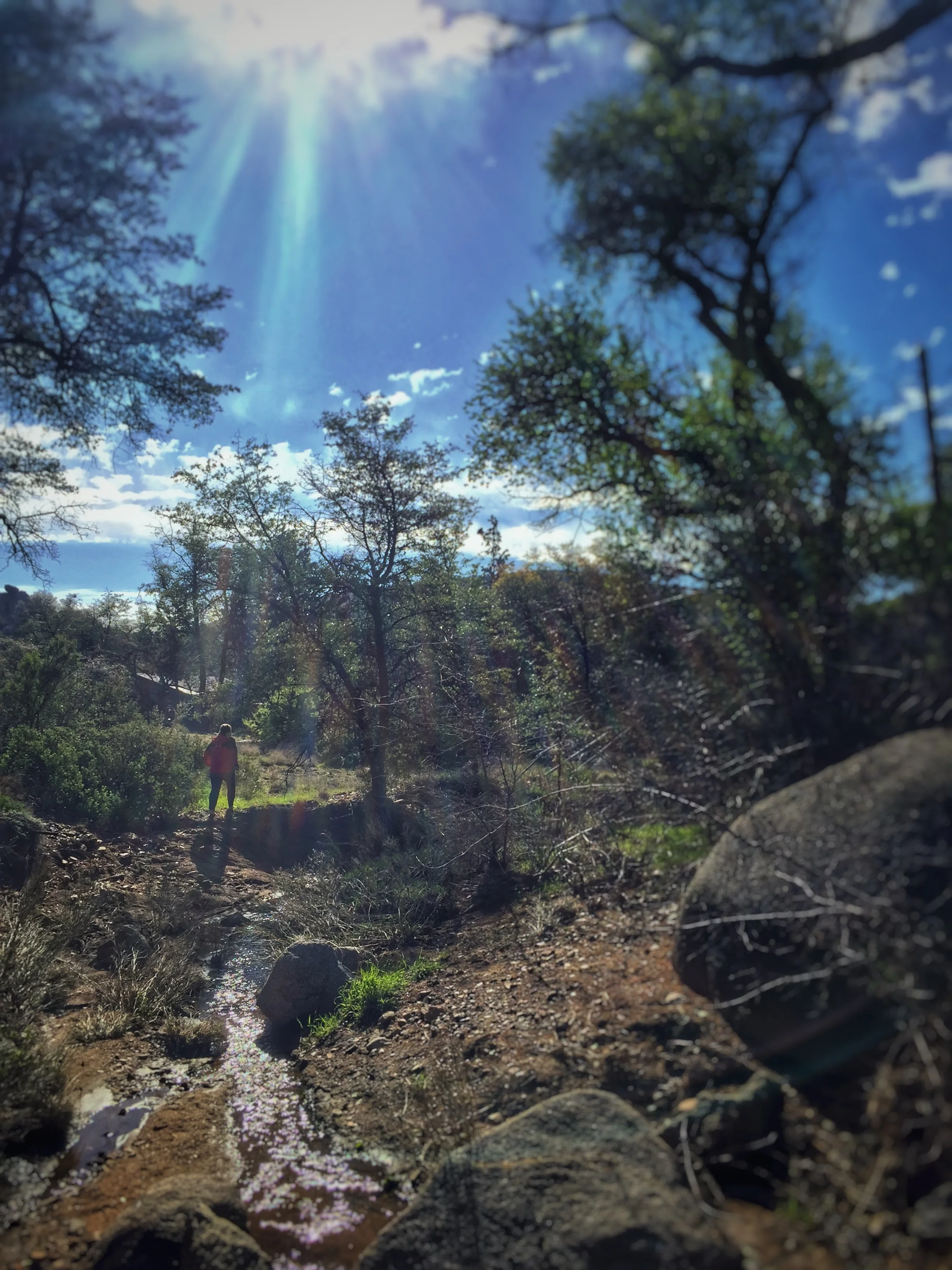You—just you, you apart from whatever material things you have or don’t have—you are a gift to us all, just by being yourself and sharing yourself here with us as we pray and break bread and sing and talk together.
Grace Vine: May 2017
Grace Vine: May 2017
Sermon: April 23, 2017
ELCA pastor Heidi Neumark in her brilliant book Breathing Spaces describes her 19 years of ministry at Transfiguration Lutheran Church in the South Bronx. Just as has happened in many cities, the neighborhood around Transfiguration Lutheran had transitioned from one socio economic status to another, from one ethnic and racial composition to another, from dealing with certain social problems to others in the years before and during Pastor Heidi’s time at Transfiguration, namely 1984 through 2003.
Sermon: Easter, April 16 2017
Sermon: Good Friday, April 14, 2017
In the swirling mass of Good Friday images: crown of thorns, blood, nails
In the chaotic movement from Pilate’s headquarters to the Place of the Skull to the new tomb in which no one had ever been laid
In the cacophony of “Crucify him” and “Hail, King of the Jews”
In the barren emptiness of “I am thirsty” and “It is finished”
It is difficult to know how to make sense of this day.
Sermon: Maundy Thursday, April 13, 2017
Holy Week Worship Schedule
Sermon: April 2, 2017
Lazarus is the brother of Mary and Martha. When he becomes ill, his sisters send for Jesus, but Jesus delays his trip to Bethany for the express purpose of revealing God’s glory. Before Jesus arrives in Bethany, Lazarus dies. Mary and Martha are angry with Jesus. “Lord, if you had been here, my brother would not have died!” they say. But Jesus declares, “I am the resurrection and the life. Those who believe in me, even though they die, will live, and everyone who lives and believes in me will never die.” Clearly, Jesus plans to raise Lazarus from the dead.
He waits until there can be no mistake, waits until Lazarus has been dead four days, waits so that no one can erroneously claim Jesus’ actions are merely a healing. Jesus makes sure that everyone sees Jesus raising Lazarus from the dead by the power of God.
Still, Jesus begins to weep.
Grace Vine: April 2017
Grace Vine: March 2017
Sermon: March 26, 2017
I’m going to start by telling you something that might be shocking. I dislike how many Christians do evangelism.
At its Greek root, the word evangelism simply denotes the practice of sharing the gospel. While that practice is certainly something we want to do, we want to share the gospel, the details about how we share the gospel are important, at least to me.
Just as people of other religions do, many Christians believe that we have a corner on the market of truth. Right?
Sermon: March 19, 2017
By the power of God, the Israelites had escaped slavery in Egypt, successfully crossed the Red Sea, fled from the Egyptian army, and found refuge in the wilderness and even manna each morning laying on the ground like dew to feed them. They didn’t know it at the time, but they would wander in the wilderness for forty years while they searched for the promised land. They would soon receive the Ten Commandments and a host of other laws.
In the meantime, the people were thirsty. The wilderness into which they had been spewed was much like our own desert landscape here in Arizona: dry, harsh, prickly, sandy, home to a plethora of insects and reptiles.
Sermon: March 5, 2017
Grace Vine: February 2017
Sermon: 2/12/17
Perhaps because of Jesus’ words today or perhaps because I simply like to be positive, I have always tried to avoid feeling angry. I clench my teeth, speak carefully, reason well, seek solutions, and understand the other person’s actions in the most charitable way possible. I want to say upfront that trying to avoid feeling angry isn’t always helpful because the holding in of anger creates bitterness and usually comes out later in unintended ways.
Sermon: 1/29/17
In our reading from the prophet Micah this morning, God instigates a case with the people of God. God wants to know why the people have wandered from God’s way when God had delivered them from slavery and saved them. In response, the people wonder how they might repay God—with burnt offerings, with calves a year old, with thousands of rams, with tens of thousands of rivers of oil, with their firstborn children…? Seemingly exasperated, the prophet Micah reminds the people: God has told you, O mortal, what is good; and what does the Lord require of you but to do justice, and to love kindness, and to walk humbly with your God?
Sermon: January 8, 2017
When I was 15 years old and getting confirmed, I wrote in my required confirmation essay that I would never be a leader in organized religion because I didn’t believe organized religion was necessary for the world.
Six years later, I was sitting in worship at the home congregation of my college roommate, and I just suddenly knew that I would be a pastor. My view on the subject hadn’t changed, to be clear. I didn’t want to be a pastor; I just knew that I would. It was like the decision was taken completely out of my hands.
Sermon: 12/24/2016
Two thousand years ago, the shepherds who were out in the field keeping watch over their flock by night were visited by an angel who proclaimed the birth of a Savior who laid in a manger in Bethlehem. In response to this astonishing announcement, the shepherds said to one another, “Let us go now to Bethlehem and see this thing that has taken place, which the Lord has made known to us.” The shepherds actually went and saw. Even though it was ridiculous—an infant savior in the face of imperial Roman power?
Sermon: December 11, 2016 (Advent 3)
This past Monday, I attempted to get to Standing Rock Reservation in North Dakota to stand with the water protectors there, to learn about the Dakota Access Pipeline, to just be with people. I was traveling with a colleague, Jayne, and our plane was diverted from Bismarck to Minot because there were blizzard conditions in Bismarck. Finally, after three or four hours, we got back on the plane, and the pilot told us we would fly low and slowly. “We’re going to try to get to Bismarck,” he said. That’s what you want to hear from the pilot of the plane you’re on. We got there safely, but even the next day, the blizzard continued. Despite being stuck in Bismarck, we met many people with whom we spoke about the situation at Standing Rock. One Mohawk woman by the name of Paulette Moore who is a journalist and documentarian spent a couple months at the camp and told us stories of what she had seen and participated in. Among other stories, she told us about a man named Angry Bird. Led by Angry Bird, a small group of people decided to build a bridge to cross over a small marshy tributary of the river to Turtle Island. The crossing would allow the water protectors to pray by the disturbed gravesite and sacred lands of the Sioux, a site within a short distance of the pipeline construction. All night, this small group of people led by Angry Bird worked on the bridge. As the sun rose, people gathered to pray. But the police also gathered, demanding that the work on the bridge stop. The water protectors would not stop and would not stop praying, drumming, burning sage, standing together along with clergy. The police destroyed the bridge. But in the middle of this confrontation with armed police, Paulette told us that Angry Bird thought of an alternative bridge. She held us in rapt attention as she vividly described Angry Bird’s face and stance as he led people to tear out the grass and create a grass bridge to Turtle Island. As you may imagine, a grass bridge is neither a sturdy nor reliable bridge, yet the people with whom Paulette stood listened and began to tear grass out and lay down a path in the marshy tributary. There is no way that a bridge of grass would allow the people to cross to Turtle Island, but they did it anyway. They embraced what Paulette, Jayne, and I in the midst of our conversation came to call “hopeful futility.”
I share this story this morning because Isaiah declares that, for the Israelites who had endured much suffering, there would be streams in the desert, that the eyes of the blind would open, that the ears of the deaf would be unstopped, that the tongue of the speechless would sing for joy. But as people who live in the desert, we know, don’t we, that the desert will never be a verdant, succulent place. As people who live in a time of unprecedented medical technology, we know, don’t we, that it is difficult, nearly impossible, to open the eyes of the blind and to unstop the ears of the deaf. Still, we read Isaiah, and we know its truth. We know the truth that what looks uninhabitable can be a place of life. We know the truth that what seems impossible can become a reality. We embrace hopeful futility, not because we are fools, not because we are dooped, but because we are people of faith who walk by faith.
A month ago, Jayne called me and said: “I want to go to Standing Rock just to be there with people, not as a political statement but to be with people at a time of crisis, but I don’t want to go alone. You’re the only person I know who might go with me.” While I of course had been following the news about the Dakota Access Pipeline since last spring and while I had empathy for the struggle and was glad to hear just last Sunday that construction had stopped, I wasn’t sure what our presence would accomplish. Even if we had made it to Standing Rock, especially on the day after the construction was halted, there is nothing we could have done to make the situation any different or any better. We would have just been there with our hopeful futility. In the last few days as I’ve described my experience to people who ask, I’ve said: It’s a bummer we didn’t get there because of the blizzard. But the trip wasn’t wasted for we were encouraged. The trip wasn’t wasted because we got to listen to and learn from people who had been at the camp. The trip wasn’t wasted because, while eating breakfast in the hotel dining room, we joined in a spirit of comradery with veterans who were just leaving Standing Rock, with water protectors who were on their way home, all around us conversation about what had taken place. The trip wasn’t wasted because we met a woman of the Standing Rock tribe who assured us she would get the warm clothes and tobacco ties I had received from Pastor Mary Louise to the people at Standing Rock once the weather cleared. The trip wasn’t wasted because we also learned from non-Natives who live near Standing Rock about their perspective of this situation, a perspective that is very different and, we found out, largely shaped by not actually having gone to the camp. You could say we came without purpose. And you could say it didn’t make sense. But it makes as much sense as a grass bridge or streams in the desert.
During the season of Advent, God leads us in a way of what appears to be hopeful futility. What do our small efforts really accomplish? If we make food for a family who just had a baby or if we say “Good morning” to someone we don’t know at church, what does that really do? If we purchase pigs or goats or chicks for families in need from the ELCA Good Gifts catalogue instead of buying unnecessary material Christmas gifts for our family and friends, how does that really make a difference in the vast sea of global poverty? If we so prioritize in our lives that we come to GLOW or choir rehearsal or praise band rehearsal or WELCA Bible Study or Christmas caroling today after church or to mow the church lawn or to scrub the church stove, what does this use of our time really achieve? If we do what seems like the right thing to do even if it means an extraordinary effort on our part and changing and disrupting our lives, is it worth it? Is any of this worth it?
Yes.
Yes.
Isaiah declares that in the verdant desert where extraordinary and seemingly impossible things happen, there is a highway, and it shall be called the Holy Way. It is not a narrow way, not a dangerous way, not a difficult-to-navigate way for even fools do not go astray, Isaiah says. When we walk with faith into acts of hopeful futility we are walking this Holy Way. We may not know now—or ever—what difference our walk made. We may not understand this Holy Way of God. Indeed, it is confusing! We thought God would come and judge the world, come and triumph over all evil with great might, but instead, we wait for the birth of a baby. Talk about hopeful futility! What will a baby do?
What will a baby do?
I guess our hope isn’t futile after all. Thanks be to God! Amen.
Bottom of Form



















